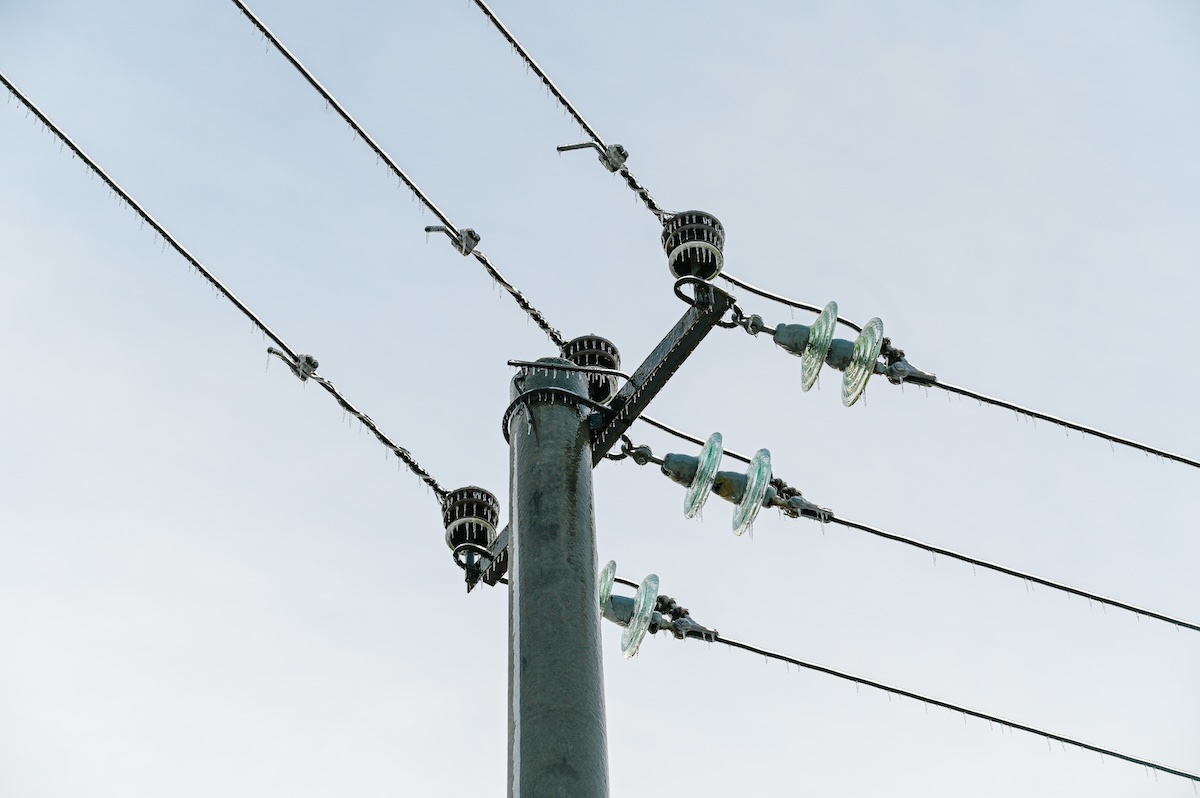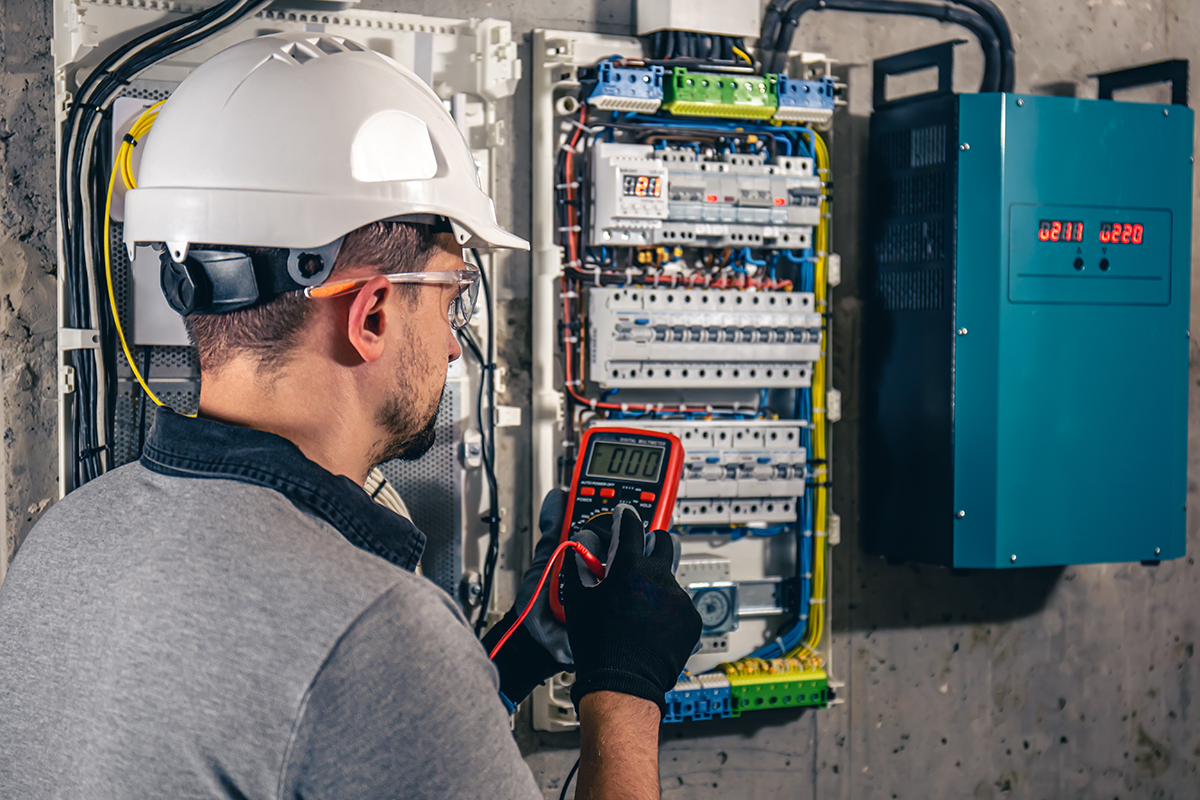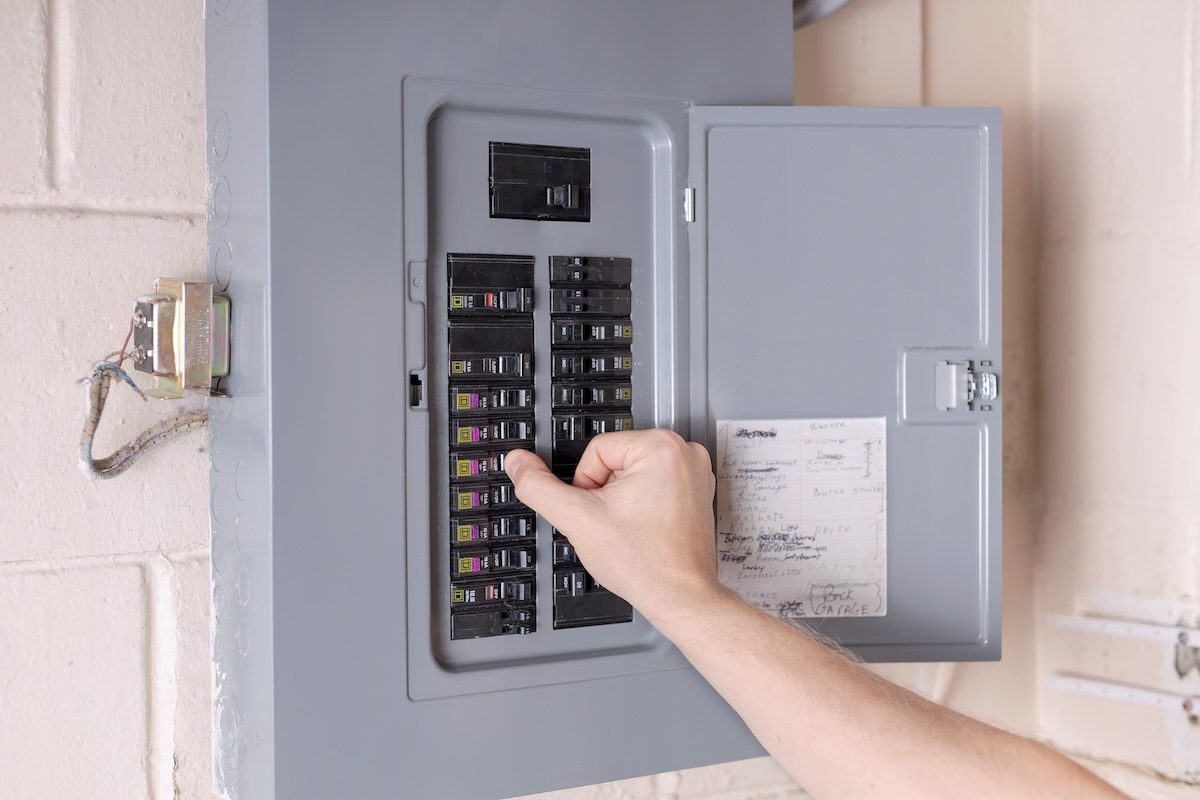Electrical problems don’t wait for business hours, especially in a city that runs as late as Dallas. A tripped main breaker at midnight, an outlet that suddenly starts smoking, the HVAC losing power during a heatwave, it all has the same effect: you need help immediately, and you need someone who is qualified to provide that help—and knows exactly what to do to fix the electrical issue.
Texan homeowners can be surprised by how fast an electrical problem can go from “mildly annoying” to something that changes the whole tone of the night. You might be settling into bed, watching the last few minutes of a game, and then—click—half the house goes dark. It’s the kind of moment where instincts kick in: grab a flashlight, open the panel, stare at the breakers for a second longer than you meant to, and realize this isn’t something you can diagnose just by looking at it.
Electricians can tell you that by the time someone calls after hours, they’ve already tried the obvious steps. The panic usually starts when the simple fix doesn’t work, and that’s when having a real emergency specialist matters. A city with the size and pace of Dallas, let alone the greater Dallas-Fort Worth area, sees more than its fair share of these late-night calls. And that’s especially true on those days when the heat pushes every home’s electrical system harder than usual.
When Every Minute Counts…
A 24 hour electrician in Dallas fits into that narrow window where urgency, safety, and technical competence all intersect. This isn’t a convenience service. It’s a specialty built around rapid-response diagnosis, real-time risk assessment, and repairs that hold up once the adrenaline fades.
There’s a certain calmness that can separate a true 24-hour technician from an electrical repairman who only takes the occasional after-hours job. They walk into a dark garage or a humming attic with the certainty of someone who has seen the same problem play out dozens of different ways. They know when a popping sound in a panel hints at a loose neutral, or when a faint electrical smell means a breaker is moments from giving up entirely. And because Dallas homes range from brand-new construction to houses wired decades before modern codes, that experience matters more than most people realize. One neighborhood has aluminum branch circuits, another has an aging panel brand electricians can recognize from across the room, and the difference between a quick fix and a dangerous situation can sometimes come down to how quickly the tech can read those clues.
Why a 24-Hour Electrician Is a Different Skill Set Entirely
Late-night electrical calls tend to skew toward higher-risk scenarios:
• breaker failures that keep resetting
• unexpected outages in part of the home
• burning smells from a panel or attic run
• water exposure around live fixtures
• outlets producing visible sparks
• heat buildup in older aluminum wiring systems
These jobs require a technician who can make decisions fast, but with the calm that comes from experience and repetition. While most Texans don’t think about it, emergency electricians in Dallas see the same patterns often enough to spot what the homeowner can’t—like a service mast starting to lean after a storm, or a failing main lug that’s days away from fully failing.
When You Should Call a 24 Hour Electrician in Dallas
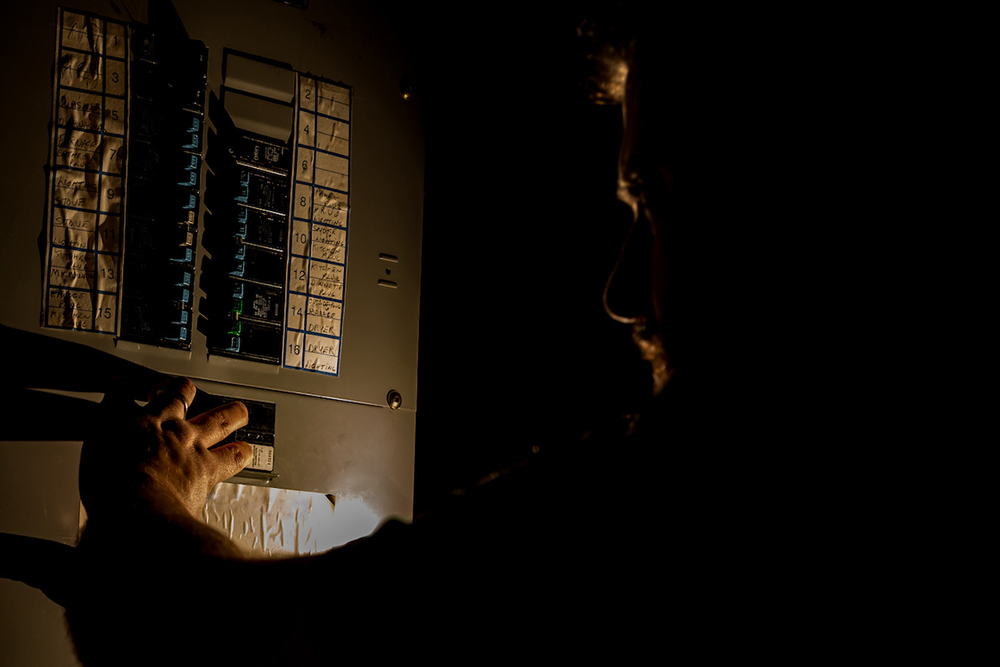
Homeowners usually know when something feels wrong, but certain situations escalate quickly. Make sure to call an appropriate number for help immediately if you encounter situations such as, but not limited to:
Burning Smells or Signs of Melting
Heat at a panel, a faint “hot plastic” odor, or discoloration around an outlet often signals an active fault. These issues tend to worsen under continued load, which makes them time-sensitive.
Repeated Breaker Trips
A breaker that resets once is usually doing its job. A breaker that keeps tripping points toward overloaded circuits, short circuits, or internal failure. Dallas, Texas homes with aging panels see this more often during heavy appliance use.
No Power to Part of the Home
Partial outages usually trace back to a failing breaker, compromised service connection, or a neutral issue. All three require skill and the right testing equipment.
Water Contact with Electrical Components
A roof leak that reaches a light fixture or a backed-up AC drain line dripping near wiring calls for fast containment. Water and electricity mix unpredictably, and the safest route is shutting the circuit and letting a 24-hour electrician make the call.
Sudden Flickering Across Multiple Rooms
Flickering isolated to a single fixture is one thing. Flickering across zones often means a neutral problem or voltage fluctuation at the service entrance. That’s something a homeowner can’t safely evaluate.
Power Outage Affecting the Entire Home
If the neighborhood still has power but your home doesn’t, the issue might be at your service mast, meter, or main breaker. Whole-home outages are a high-priority emergency.
Damaged or Exposed Wiring
Any wiring that has been cut, chewed, overheated, or visibly deteriorated should be handled immediately. Exposed conductors can energize nearby metal or framing without warning.
Burnt or Charred Outlets
An outlet that shows blackening, melted plastic, or scorch marks indicates a loose connection or internal failure. These can arc repeatedly and ignite surrounding material.
Buzzing or Humming Sounds From the Breaker Box
Panels are designed to run silently. A buzzing sound usually points to a loose connection, a stressed breaker, or unstable voltage feeding into the home.
Short Circuits and Circuit Breaker Failure
If a breaker refuses to reset or instantly fails again, the underlying fault needs expert evaluation. Forcing it repeatedly can escalate the damage.
What an Emergency Electrical Visit Can Look Like
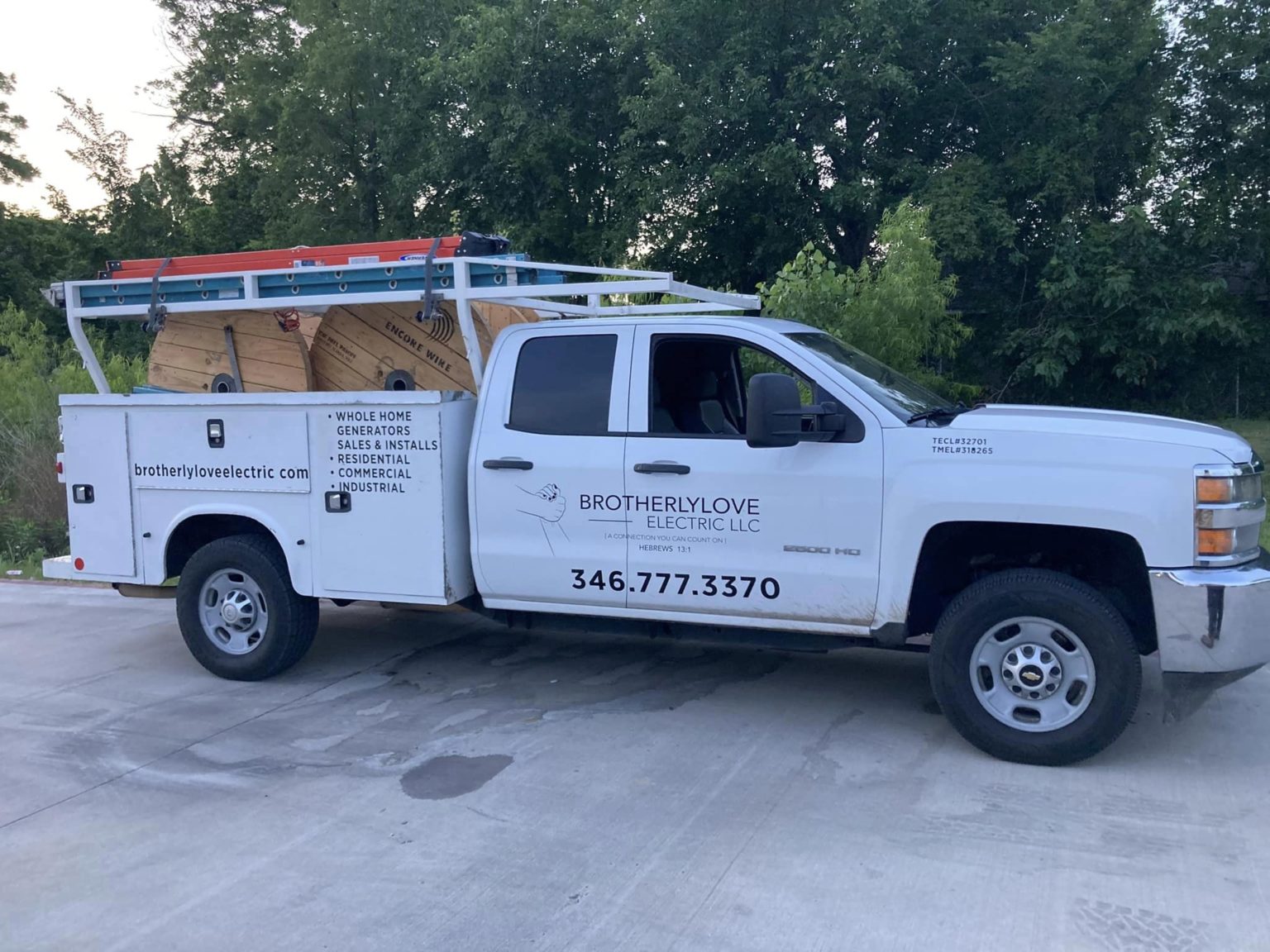
People imagine sirens and spotlights, but a typical emergency call is quiet and methodical. The electrician typically focuses on three steps:
1. Stabilize the Hazard
• isolate affected circuits
• verify voltage with a meter
• confirm the panel is safe to open
This part feels slow to someone watching, but it prevents escalation.
2. Pinpoint the Fault
Electricians look for recurring patterns—heat signatures on breakers, loose terminations, corrosion, signs of arcing, water intrusion, or insulation failure. Dallas homes from the 80s and 90s often have panels and breaker brands known for reliability issues, so those get checked closely.
3. Make a Safe, Durable Fix
Sometimes the solution is immediate: replace a failed breaker, repair a compromised conductor, or secure a loose connection. Other times, the electrician stabilizes the system for the night and schedules a follow-up for larger work like panel upgrades or rewiring.
A short aside: anyone who has done nighttime electrical work knows the difference between working in a garage with a single flashlight and working with proper temporary lighting. The speed and accuracy change dramatically—one of those little details homeowners rarely see that separate professionals from hobbyists.
Things to Look for When Hiring a 24 Hour Electrician in Dallas
Because emergencies don’t allow long comparisons, it helps to know the markers of a strong service provider ahead of time.
- Verified 24/7 Emergency Services
- Transparent Pricing
- Licensed and Insured Technicians
Some other factors include:
Experience With Older Dallas Panels
Many neighborhoods contain equipment that’s decades old. Someone familiar with regional equipment quirks solves problems faster and with less invasive work.
Service Vehicles Stocked for Night Jobs
A van loaded with common breakers, connectors, and diagnostic tools cuts repair time dramatically. If the electrician has to “run back to the warehouse,” the delay can stretch into hours.
Common Emergency Repairs in Dallas-Fort Worth Homes
Patterns emerge over time. A few issues come up repeatedly in overnight calls:
Breaker Replacement and Panel Issues
A breaker that won’t stay set often means it’s at the end of its service life. Panels exposed to garage humidity or attic heat also deteriorate faster.
Faulty GFCI or AFCI Devices
Weather shifts, moisture, and high-load appliances make protective devices trip. Older GFCIs can fail entirely and require replacement.
Overloaded Circuits
Kitchen renovations, EV chargers, and new HVAC systems can outpace the home’s original wiring. Emergency electricians often end up being the first to spot the mismatch between demand and capacity.
Storm-Related Damage
Dallas storms are quick to expose weak connections. A fallen branch that tugs on the service entrance can leave a home with unstable voltage—not something that waits until morning.
How Homeowners Can Reduce Risk Before an Electrician Arrives
A 24-hour electrician handles the dangerous part, but homeowners can make the environment safer:
• turn off affected breakers
• keep water away from any electrical components
• avoid using extension cords to “work around” outages
• if the panel feels hot, don’t touch it further
• clear access to the panel and affected rooms
Even something simple like turning off the dryer or oven reduces load on a stressed system.
Why Fast Response Matters in this Part of Texas
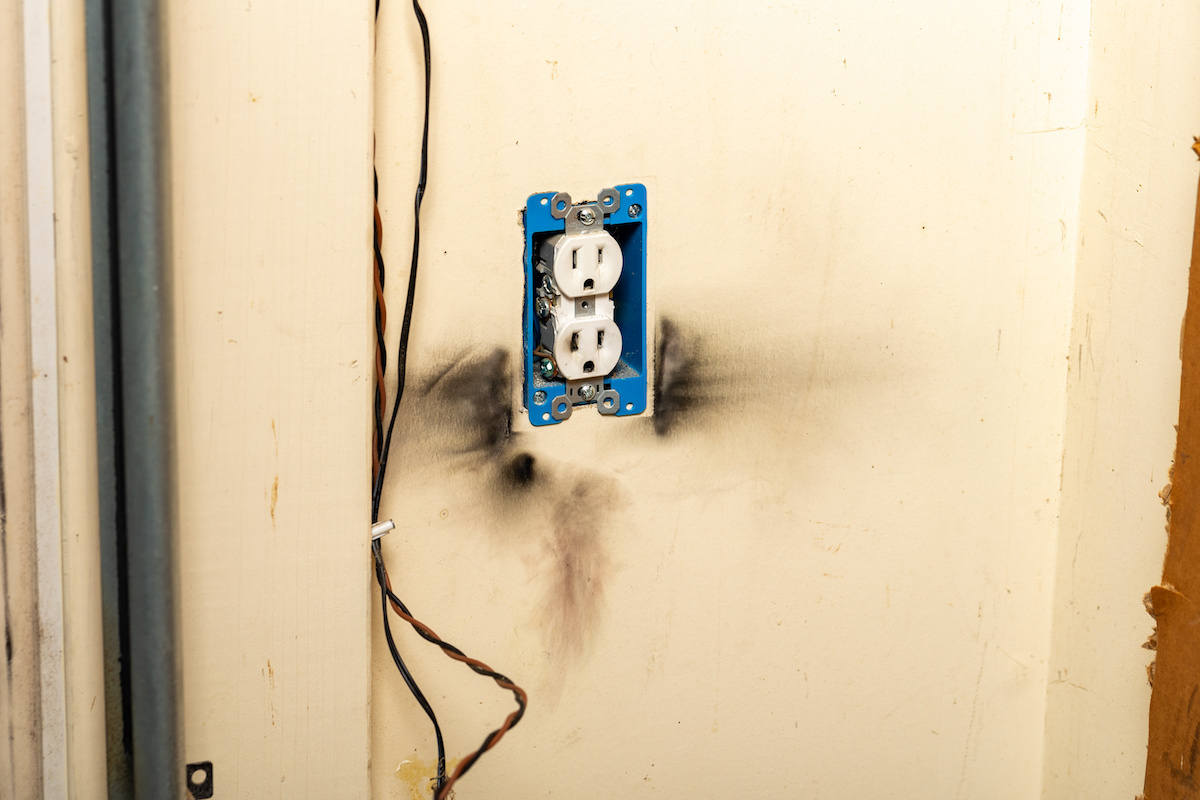
Electricity follows physical laws, not schedules. A failing breaker doesn’t care that it’s 2:30 AM. Houses built across different decades and codes create a patchwork of wiring conditions—some solid, some overdue for replacement. When a fault appears, it often signals something deeper in the system.
That’s why the best emergency electricians operate with urgency but not panic. They’ve seen how quickly a minor symptom turns serious, and they’ve also seen how small fixes can prevent major, more expensive repairs later.
Final Word
If you’ve landed on this page because something in your home is actively failing, give the situation the attention it deserves. Electrical issues rarely fix themselves, and the small signs people tend to overlook—heat at the panel, a breaker that refuses to hold, lights dipping across multiple rooms—often point to problems that grow under continued load. A 24 hour electrician in Dallas steps into those moments not just to restore power, but to make sure the underlying fault is understood and contained before anything escalates.
Emergency electricians do more than rush to the door. They’re trained to work in conditions where information is limited, visibility is low, and the homeowner has already exhausted the obvious troubleshooting steps. It’s a type of work that depends on reading subtle clues in the system and understanding how different generations of wiring, outlets, and panels behave when they’re stressed. That knowledge is what keeps a simple failure from turning into structural damage or a safety hazard.
When electricity starts acting unpredictably, most people feel a mix of frustration and unease. The goal of calling an emergency professional is to replace that uncertainty with clarity—someone who can look at the situation, explain what’s happening in plain language, and stabilize the home so you can breathe again. Reliable electrical systems aren’t about convenience; they’re part of the structure that keeps a home livable and safe.
If something feels wrong, the safest choice is to shut down the affected area and reach out for help. Trained emergency technicians exist for exactly this reason: to respond quickly, assess the risk, and bring the situation back under control with methods that hold up long after the immediate problem is solved.


